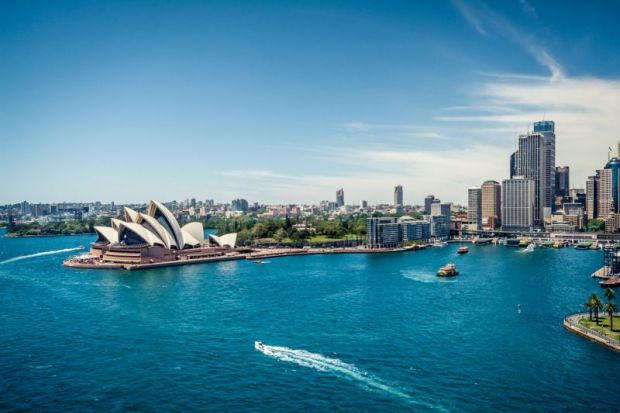Browse the THE University Impact Rankings 2019 results
Reducing inequality by providing educational opportunities and aspirational pathways for our students has been a core tenet of Western Sydney University’s mission since its inception. You could argue that it’s part of our DNA.
We were established with the purpose of serving the region as a centre of learning – this is enshrined in the act of parliament that defines us. As the university moves forward in today’s exciting yet often challenging times, we have committed to the United Nations’ Sustainable Development Goals. These priorities drive our key transformative strategy, Securing Success 2018-2020.
Being dynamic centres for teaching, research and innovation, universities can lead the way in supporting socially just and ecologically responsible social transformation.
The Greater Western Sydney region has many sustainable development challenges. There is a need to balance rapidly increasing urbanisation against biodiversity, river health, habitat and farmland losses while invigorating sustainable business, addressing transport challenges and enabling social mobility. These reflect the broader challenge of enhancing urban living in the face of climate change.
The Australian Council of Social Service has estimated that despite Australia’s 20 years of economic growth, there are 3 million people living in poverty in the country, a widening gap in income inequalities and increasing numbers of people who are food insecure.
As a university embedded in Western Sydney, our mission is to support our students to reach their full potential and to understand these complex challenges. We are proud of our diverse community and recognise that the higher education experience shapes students’ capacity to contribute to the world as ethical, compassionate and civic-minded global citizens.
Some 65 per cent of our 45,000 students are the first in their families to receive a university education. One-third of our domestic students speak a language other than English at home. More than 30 per cent are from lower socio-economic backgrounds, the highest proportion of any Australian university. We are justifiably proud of coming second in the Times Higher Education University Impact Rankings 2019 by SDG 10: reduced inequalities table.
The development and implementation of a non-discriminatory admissions policy is one initiative that demonstrates our commitment to providing all students with opportunity. This Australian-first “True Rewards” programme admits students on the basis of their performance in individual high school certificate subjects rather than via the traditional Australian Tertiary Admission Rank (ATAR). Our analysis shows that these students are performing just as well as those admitted via the ATAR-based system.
In Australia, Aboriginal and Torres Strait Islander participation in higher education has been linked to a rise in the standard of living and increased employment opportunities. The government’s 2018 Closing the Gap report noted that “the higher the level of education, the smaller the gap between Indigenous and non-Indigenous employment”.
Our Pathways to Dreaming programme is one response to closing the gap – it is designed to engage Year 8 to Year 12 Aboriginal and Torres Strait Islander students in higher education. Aboriginal and Torres Strait Islander student numbers at Western Sydney University have increased steadily since 2012; last year there were 718 such students, an increase of 8 per cent from 2017.
Our long-established equity and diversity policies are embedded as practices to promote inclusiveness within and beyond the university. Sev Ozdowski, director of our Office of Equity and Diversity, initiated the highly successful series of international conferences on human rights education in 2010 to support and continue this agenda. Additionally, we maintain a strong commitment to gender equity and inclusivity, and we are particularly proud of our 14 consecutive years as an employer recognised for workplace diversity and flexibility.
Looking beyond the region, our key international research programmes in India and Sri Lanka have the ideal of addressing inequality embedded at their core. The Managed Aquifer Recharge through Village-level Intervention initiative was developed collaboratively with villagers in semi-arid regions of India. These farmers face significant water shortages and the risk of crop failure with slight changes in monsoon rain patterns. This work is enhancing livelihood opportunities for these rural communities by improving the security of irrigation water supplies at village scale.
In Sri Lanka, another collaborative project is focused on using technologies to support livelihood activities. The Social Life Networks is an online system accessible on mobile phones for farmers to better access decision-making information to support their farming applications.
Through key partnerships and networks, our institution benefits from joint collaborations across borders, cultures and languages; in turn, we bring back the sharing of knowledge, expertise and learnings from a global level and apply these closer to home. We are proud of this vital work and of our achievements, and we will continue to advance our efforts collaboratively and globally, with the SDGs front and centre.
Barney Glover is vice-chancellor and president at Western Sydney University. The institution is ranked first in the gender equality SDG table and second in the reduced inequalities SDG table in the THE University Impact Rankings 2019.




